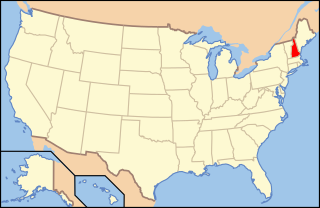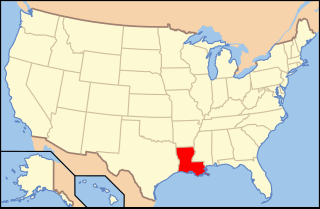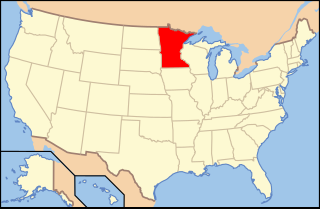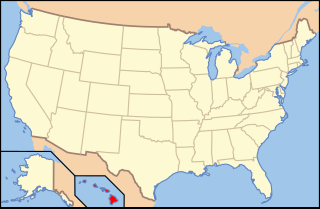See also
- Timeline of LGBT history — timeline of events from 12,000 BCE to present
- LGBT rights by country or territory — current legal status around the world
- LGBT social movements
| |||
|---|---|---|---|
| +... |
This is a list of notable events in the history of LGBT rights that took place in the year 1991.
This is a list of notable events in the history of LGBT rights that took place in the year 1990.
This is a list of notable events in the history of LGBT rights that took place in the year 1998.
This is a list of notable events in the history of LGBT rights that took place in the year 2002.
This is a list of notable events in the history of LGBT rights that took place in the year 2000.
This is a list of notable events in the history of LGBT rights that took place in the year 2003.
This is a list of notable events in the history of LGBT rights that took place in the year 2001.
This is a list of notable events in the history of LGBT rights that took place in the year 1993.
This is a list of notable events in the history of LGBT rights that took place in the year 1999.
This is a list of notable events in the history of LGBT rights that took place in the year 1972.
This is a list of notable events in the history of LGBT rights that took place in the year 1985.
This is a list of notable events in the history of LGBT rights that took place in the year 1995.
This is a list of notable events in the history of LGBT rights that took place in the year 2005.
This is a list of notable events in the history of LGBT rights that took place in the year 2006.
This is a list of notable events in the history of LGBT rights that took place in the year 2007.

Lesbian, gay, bisexual, transgender, and queer (LGBTQ) people in the U.S. state of New Hampshire enjoy the same rights as non-LGBTQ people, with most advances in LGBT rights occurring in the state within the past two decades. Same-sex sexual activity is legal in New Hampshire, and the state began offering same-sex couples the option of forming a civil union on January 1, 2008. Civil unions offered most of the same protections as marriages with respect to state law, but not the federal benefits of marriage. Same-sex marriage in New Hampshire has been legally allowed since January 1, 2010, and one year later New Hampshire's civil unions expired, with all such unions converted to marriages. New Hampshire law has also protected against discrimination based on sexual orientation since 1998 and gender identity since 2018. Additionally, a conversion therapy ban on minors became effective in the state in January 2019. In effect since January 1, 2024, the archaic common-law "gay panic defence" was formally abolished; by legislation implemented within August 2023.

Lesbian, gay, bisexual, transgender, and queer (LGBTQ) people in the U.S. state of Louisiana may face some legal challenges not experienced by non-LGBTQ residents. Same-sex sexual activity is legal in Louisiana as a result of the U.S. Supreme Court decision in Lawrence v. Texas. Same-sex marriage has been recognized in the state since June 2015 as a result of the Supreme Court's decision in Obergefell v. Hodges.

Lesbian, gay, bisexual, transgender, and queer (LGBTQ) people in the U.S. state of Minnesota have the same legal rights as non-LGBTQ people. Minnesota became the first U.S. state to outlaw discrimination based on sexual orientation and gender identity in 1993, protecting LGBTQ people from discrimination in the fields of employment, housing, and public accommodations. In 2013, the state legalized same-sex marriage, after a bill allowing such marriages was passed by the Minnesota Legislature and subsequently signed into law by Governor Mark Dayton. This followed a 2012 ballot measure in which voters rejected constitutionally banning same-sex marriage.

Lesbian, gay, bisexual, transgender, and queer (LGBTQ) people in the U.S. state of Hawaii enjoy the same rights as non-LGBTQ people. Same-sex sexual activity has been legal since 1973; Hawaii being one of the first six states to legalize it. In 1993, a ruling by the Hawaiʻi Supreme Court made Hawaii the first state to consider legalizing same-sex marriage. Following the approval of the Hawaii Marriage Equality Act in November 2013, same-sex couples have been allowed to marry on the islands. Additionally, Hawaii law prohibits discrimination on the basis of both sexual orientation and gender identity, and the use of conversion therapy on minors has been banned since July 2018. Gay and lesbian couples enjoy the same rights, benefits and treatment as opposite-sex couples, including the right to marry and adopt.

Lesbian, gay, bisexual, transgender, and queer (LGBTQ) people in the U.S. state of Nebraska may face some legal challenges not experienced by non-LGBTQ residents. Same-sex sexual activity is legal in Nebraska, and same-sex marriage has been recognized since June 2015 as a result of Obergefell v. Hodges. The state prohibits discrimination on account of sexual orientation and gender identity in employment and housing following the U.S. Supreme Court's ruling in Bostock v. Clayton County and a subsequent decision of the Nebraska Equal Opportunity Commission. In addition, the state's largest city, Omaha, has enacted protections in public accommodations.

LGBT employment discrimination in the United States is illegal under Title VII of the Civil Rights Act of 1964; employment discrimination on the basis of sexual orientation or gender identity is encompassed by the law's prohibition of employment discrimination on the basis of sex. Prior to the landmark cases Bostock v. Clayton County and R.G. & G.R. Harris Funeral Homes Inc. v. Equal Employment Opportunity Commission (2020), employment protections for LGBT people were patchwork; several states and localities explicitly prohibit harassment and bias in employment decisions on the basis of sexual orientation and/or gender identity, although some only cover public employees. Prior to the Bostock decision, the Equal Employment Opportunity Commission (EEOC) interpreted Title VII to cover LGBT employees; the EEOC determined that transgender employees were protected under Title VII in 2012, and extended the protection to encompass sexual orientation in 2015.